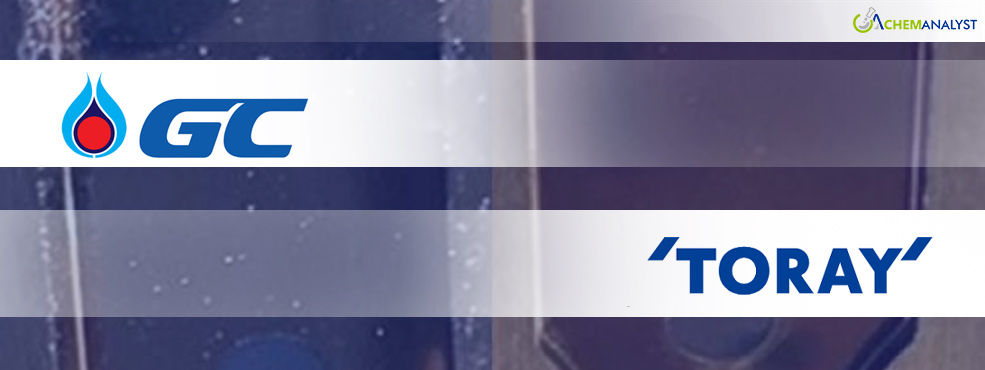Welcome To ChemAnalyst

Global Chemical Public Company Limited (GC), to explore innovative methods for mass-producing adipic acid from non-edible biomass. This partnership follows the signing of a memorandum of understanding between the two companies, outlining plans to jointly evaluate the technology required to produce bio-based adipic acid sustainably and assess its commercialization potential in both Thailand and Japan. If deemed feasible, the companies aim to establish commercial-scale production by 2030, with an initial goal of producing several thousand metric tons of bio-based muconic acid and bio-based adipic acid annually.
This collaboration began last year, when Toray and GC embarked on developing processes to produce nylon-6,6 raw materials from non-edible, biomass-derived sugars. These sugars are generated at Cellulosic Biomass Technology Co., Ltd., a Thai company in which Toray holds an 84% stake. GC’s role in the collaboration involves using its proprietary fermentation technology to convert non-edible sugars into muconic acid with high efficiency. Toray then applies its specialized hydrogenation process to transform the muconic acid into bio-based adipic acid at high yields. This bio-adipic acid is intended as an eco-friendly alternative to the petroleum-derived adipic acid traditionally used to make nylon-6,6, a critical material in resins and fibers.
The bio-based adipic acid developed through this partnership presents a sustainable solution for industries that rely on nylon-6,6. Unlike conventional chemical processes, Toray and GC’s method of producing bio-adipic acid does not generate nitrous oxide, a potent greenhouse gas often released as a byproduct during standard chemical synthesis. This aspect alone marks a significant environmental advantage, as it addresses one of the pressing challenges in chemical manufacturing: reducing emissions that contribute to climate change.
As part of their long-term vision, Toray and GC are working to create a comprehensive supply chain that will produce tens of thousands of metric tons of bio-based adipic acid using agricultural waste from Thailand’s abundant natural resources. This resource-rich setting makes Thailand an ideal location for such a large-scale production plan. The companies plan to use the resulting bio-based acid to manufacture environmentally friendly nylon-6,6, contributing to a circular economy model by promoting sustainable practices and lowering greenhouse gas emissions.
In support of this endeavor, the Japanese Ministry of Economy, Trade, and Industry (METI) has chosen this project for its fiscal 2023 supplementary subsidy under the Global South Future-oriented Co-creation Project. This program promotes the overseas development of sustainable infrastructure by Japanese companies, underscoring the international significance and potential environmental impact of Toray and GC’s work.
Toray is committed to researching and developing sustainable materials, setting ambitious goals to enhance resource recycling. The company seeks to achieve a 20% recycling rate for the raw materials it uses in core polymer products by 2030. This aligns with its broader mission to support a sustainable, circular economy. By pioneering new materials and production methods, Toray aims to deliver innovative solutions that benefit society and contribute to social progress, driving the transformation toward a more sustainable future in the chemicals and materials industries.
We use cookies to deliver the best possible experience on our website. To learn more, visit our Privacy Policy. By continuing to use this site or by closing this box, you consent to our use of cookies. More info.
